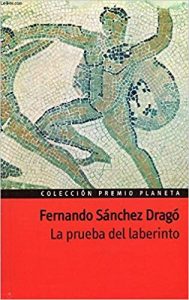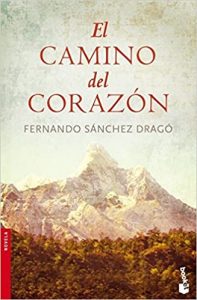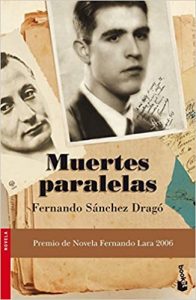For the profane and superficial, there is talk of the one who was the introducer of tantric sex in Spain. For connoisseurs, he was a brilliant writer and a free and controversial communicator (the one and the other come together given the fine skin we wear). For everyone, regardless: Fernando Sanchez Drago.
Beyond his public image and his taste for opposing anyone who flaunted their supremacist opinions, there was a writer who had won numerous literary awards since the 70s.
Of Sánchez Drago, at least as far as fictional narrative is concerned, was a speculative, existential, even experimental work.. From the most simplistic reality, the author launched us into grand assumptions, into existentialism with hints of revenge. Mortals yes, but not for that reason deprived of the tangible paradise of emotions, impressions, experiences.
Parallel to a life devoted to the deepest contradictions and travel, he always took advantage of the lucidity of each moment to compose that vital mosaic that literature was always for him.
Love, desire, sex, politics, history, beliefs, uprooting, death. It may sound grandiloquent to cite these concepts as thematic sources of Sánchez Dragó, but the truth is that there is a little of each in each novel of this author dedicated to the cause of manifesting his vision of the world, as convinced in each moment as he is dedicated to the wise overcoming the contradictions of each moment.
Top 3 recommended novels by Sánchez Drago
The maze test
From JJ Benitez, who profusely narrated a present-day world's encounter with the times of Christ in his Trojan Horse series, no other author had proposed a journey of similar significance.
In the case of The Labyrinth Test, it is not an American scientific investigation, but rather the spiritual, psychotropic and dreamlike journey of Dionysus (on the other hand, God of wine and ecstasy...) in search of Jesus of Galilee. For many readers it is a pretentious, pedantic and grandiose novel.
Even on some occasions I wanted to understand from the author himself that his Planeta award was a recognition of emptiness. And yet, to me it seemed like a great novel to enjoy in small sips.
Reading a novel does not have to be a meticulously chronological exercise (including possible flash backs or retrospective scenes) nor an assembly of consequent branching or trunk plots. What Dionisio is discovering in his particular odyssey.
It is a novel that only respects the framework of overlapping thoughts based on an idea, a kind of automatic writing that surely went through a process of debugging or rewriting later. Because the novel at the end deals with everything with a quixotic spirit, facing situations about love, desire, mystery, politics, religion, sex. If you want to take a literary trip in the most heterodox sense, do not stop reading this novel.
The path of the heart
Sometimes it seems as if Sánchez Dragó lived reincarnated by the spirit of the 60s, not from that decade in Spain, but in some other country in which the hippie, the spiritual and the oriental seemed to compose a symphony of eternal modernity, of resolution end of civilization towards peace.
Again we are presented with a character named Dionisio, undoubtedly already as a literary transcript of the author himself. The year is 1969 and the guy decides to leave his wife pregnant to travel the eastern part of the world and return with a little more light regarding the special moment that he has to live.
Cristina, the pregnant woman, writes a novel in her absence and Dionisio writes her letters about his time in countries like Vietnam, Nepal, Indonesia and Pakistan. The timing of the character's journey is clearly inopportune, but I think it's more of a creaking element that keeps us tied to the reading (the guy would be so stupid to abandon the woman who is expecting their child).
And so we accompany Dionisio on a disturbing journey in which at times we feel like kicking the character's ass and leaving emotions on the other side of the world. But the end is the great redeemer of the untimely odyssey ...
Parallel deaths
Sánchez Drago gets serious to narrate a national episode that is largely his father's particular experience and the starting point of much of the past that makes up each of his cells.
When Franco's uprising in North Africa was announced in July 36, Fernando Sánchez Monreal, director of the Febus journalism agency, fled to southern Spain in search of first-hand information.
His journey ended a few months later in Valladolid, where he was given the most dramatic of walks. And there the author's mother and his sister were left, abandoned to their fate in the midst of the uprising and war.
Based on the author's own inquiries and filtered with a point of fiction, this autobiographical novel gives a good example of survival in hard times and the ingenuity forced by circumstances in a tragic reflection of Spain plunged into civil war.



